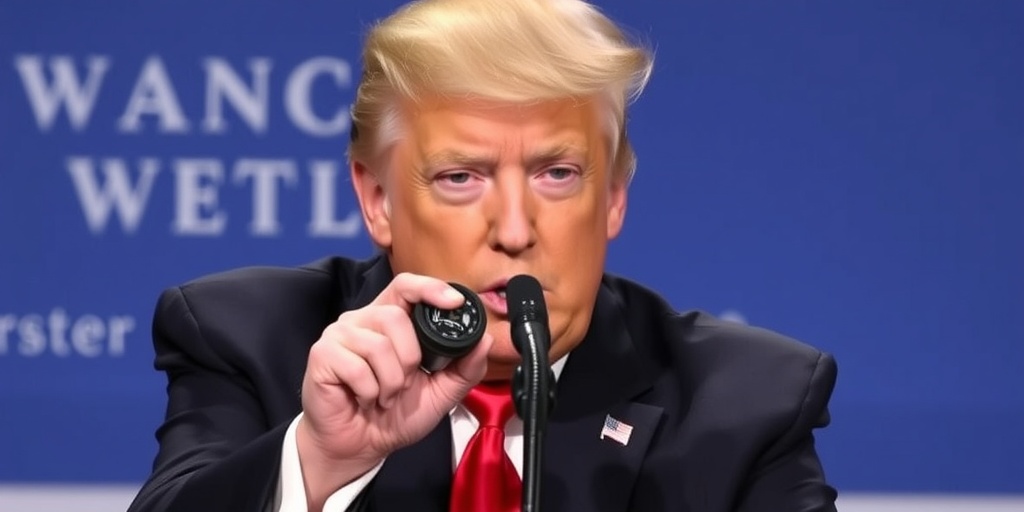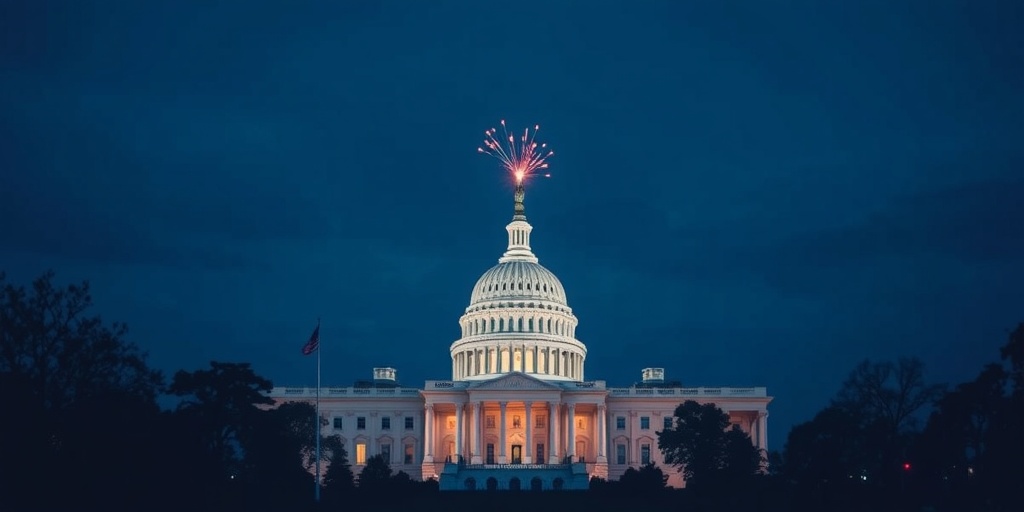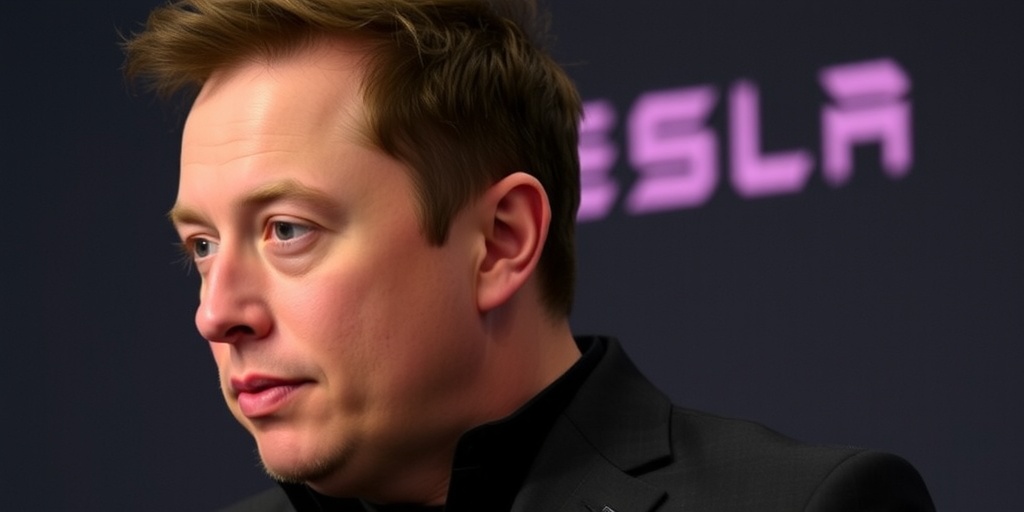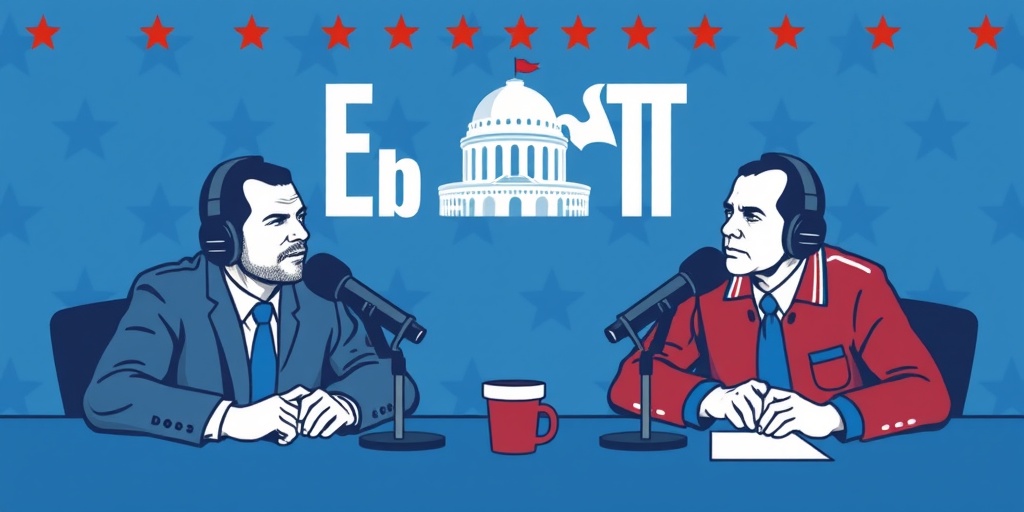Now Reading: MeidasTouch Soars in Podcast Rankings as Progressives Seek Solutions
-
01
MeidasTouch Soars in Podcast Rankings as Progressives Seek Solutions
MeidasTouch Soars in Podcast Rankings as Progressives Seek Solutions
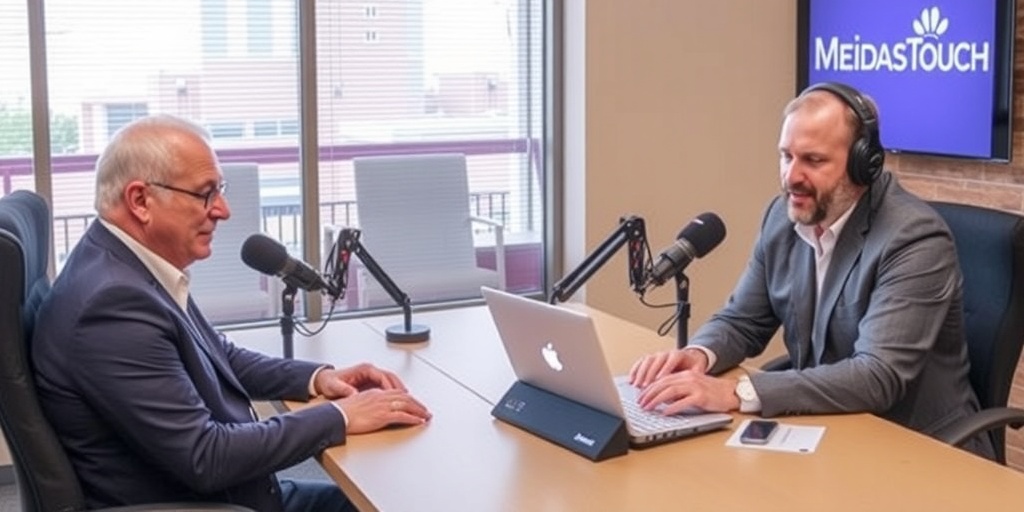
The Rise of Progressive Media: A Digital Shift in Democratic Politics
In the aftermath of a highly publicized meeting between President Trump and Ukrainian President Volodymyr Zelensky, Senator Adam Schiff expressed his strong condemnation during a segment on the YouTube channel of MeidasTouch, a progressive media company. Schiff’s remarks, which garnered over 2.2 million views, highlighted a growing trend: the evolution of a digital-first media landscape that is reshaping the way progressive voices are amplified in American politics.
Founded in 2020 as a political action committee by brothers Ben, Brett, and Jordy Meiselas, MeidasTouch has transitioned into a dominant player in the online media sphere, specializing in critical commentary on Trump and the Republican Party. Their approach combines bold, rapid-fire content across videos, podcasts, and social media that resonates with the anxieties of many Democrats since Trump took office.
The past months have seen a significant surge in the popularity of progressive media outlets. For instance, “Pod Save America,” hosted by former Obama administration staffers, has reported a dramatic 70 percent increase in hours played since January. Meanwhile, “The Young Turks,” a progressive news show, witnessed a staggering 208 percent rise in YouTube subscribers in one month alone. Most notably, “The MeidasTouch Podcast” even surpassed Joe Rogan’s show in download rankings on Apple and Spotify for two weeks, a feat emphasizing the mounting impact of digital media in shaping political discourse.
Ben Meiselas, a lawyer and co-founder of MeidasTouch, shared insights on the changing media landscape: “We’re providing a comforting place where we’re channeling people’s feelings during a real difficult time.” The content produced by MeidasTouch offers a seemingly optimistic perspective, portraying Democrats as strong and Republicans as faltering. Recent podcast episodes have included titles like “Trump in Panic After Caving Like a Coward,” reflecting a narrative that energizes their audience.
As of now, MeidasTouch boasts a dedicated team comprised of 12 full-time employees and 30 regular contributors, including former Trump attorney Michael Cohen. With over 4.3 million YouTube subscribers, the organization is making significant inroads in digital media, challenging the traditional primacy of television news. “Digital is far more significant and important than TV now,” Meiselas asserts, pointing to the shifting preferences among younger audiences.
While television remains a staple of news consumption, progressive outlets have acknowledged the imperative to adapt. Senator Cory Booker of New Jersey, who oversees the Senate Democratic Strategic Communications Committee, commented on the difficulty Democrats face in modern media: “We were getting shellacked in new media.” Despite feedback criticizing the past reticence of Democratic figures, especially compared to Trump’s savvy use of nontraditional media outlets, strides are being made to better engage younger voters through social media platforms.
Efforts have been initiated to enhance Democrats’ digital outreach capabilities. In January, Senator Booker’s committee, along with counterparts in the House, advertised openings for social media managers to foster relationships with digital creators. Booker has also brought in influencers like Brian Tyler Cohen to provide media training for fellow Democrats, helping them navigate the digital landscape more effectively.
Cohen, whose YouTube channel has rapidly expanded, has become a sought-after content creator, stating that he is inundated with requests from politicians eager to participate on his platform. The digital environment has prompted some to dive in directly, as illustrated by California Governor Gavin Newsom’s recent podcast launch, where he features notable figures from the pro-Trump sphere, a strategy aimed at mimicking the frenetic pace of right-leaning media.
Despite recent successes, the left is still striving for a figure comparable to influential right-wing personalities such as Elon Musk and Ben Shapiro. Melissa Kiesche of Edison Research underscores this gap, indicating that while MeidasTouch’s achievements are commendable, their reach is still significantly trailing behind dominant names in conservative media.
The landscape is evolving further with progressive figures utilizing diverse strategies to engage audiences. Representative Ro Khanna enlisted Carlos Eduardo Espina, a prominent left-wing influencer with millions of followers, to amplify his message during a recent event. The 11 videos Espina posted have drawn more than 17 million views, illustrating the potential digital outreach holds for those who leverage influencer marketing effectively.
Khanna opines that until more Democrats recognize the value of digital influencers in building community engagement, the party will continue to lag behind its right-wing counterparts. “I think the right has really created a space in the digital world where people feel they’re part of a community,” he remarked. “And the left has not done that.”
As progressive media continues to gain traction, it is clear that digital strategies are becoming essential for engaging voters in a rapidly changing political climate. The landscape is shifting, and for Democrats to thrive, embracing these platforms is no longer optional—it’s imperative.
Stay Informed With the Latest & Most Important News
Previous Post
Next Post
-
 01New technology breakthrough has everyone talking right now
01New technology breakthrough has everyone talking right now -
 02Unbelievable life hack everyone needs to try today
02Unbelievable life hack everyone needs to try today -
 03Fascinating discovery found buried deep beneath the ocean
03Fascinating discovery found buried deep beneath the ocean -
 04Man invents genius device that solves everyday problems
04Man invents genius device that solves everyday problems -
 05Shocking discovery that changes what we know forever
05Shocking discovery that changes what we know forever -
 06Internet goes wild over celebrity’s unexpected fashion choice
06Internet goes wild over celebrity’s unexpected fashion choice -
 07Rare animal sighting stuns scientists and wildlife lovers
07Rare animal sighting stuns scientists and wildlife lovers













